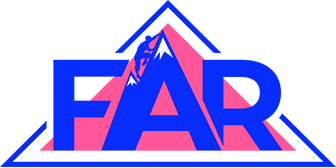Recovery is the process of overcoming substance abuse and learning to live a sober, productive life. Anyone can recover from substance abuse with the right treatment and support.
Among Americans aged 12 years and older, 37.309 million were current illegal drug users (used within the last 30 days) as of 2020. 13.5% of Americans 12 and overused drugs in the last month, a 3.8% increase year-over-year (YoY).
59.277 million or 21.4% of people 12 and over have used illegal drugs or misused prescription drugs within the last year. 138.543 million or 50.0% of people aged 12 and over have illicitly used drugs in their lifetime.
Understanding
Substance Abuse
Substance abuse is the overuse of substances, including alcohol and drugs, which can lead to physical and psychological dependence. People who abuse substances may continue using them even when they experience negative consequences, such as:
- Job loss
- Financial problems
- Relationship difficulties
- Legal problems
If you or someone you know is struggling with substance abuse, it’s important to get help. Focused Addiction Recovery’s substance abuse treatment in North Carolina can help you or a loved one break the cycle of addiction, and avoid the negative consequences of substance abuse.
What is
Substance Abuse Treatment?
Substance abuse treatment is designed to help people stop using substances and avoid the negative consequences of substance abuse. Treatment can be provided in a variety of settings, including:
- Inpatient treatment: Inpatient treatment is typically provided in a hospital setting. People in inpatient treatment stay at the facility for a set period of time, usually 28 days. During their stay, they receive 24-hour care and supervision.
- Outpatient treatment (OP)t: Outpatient treatment is typically provided in a clinic setting. People in outpatient treatment typically attend scheduled sessions at the clinic and then return home afterward.
- Partial hospitalization (PHP): Partial hospitalization is a type of outpatient treatment that is typically provided in a hospital setting. People in partial hospitalization programs typically attend scheduled sessions at the hospital during the day and then return home afterward.
- Intensive outpatient treatment (IOP): Intensive outpatient treatment is a type of outpatient treatment that is typically provided in a clinic setting. People in intensive outpatient programs typically attend scheduled sessions at the clinic for several hours each day, but they do not stay overnight.
Prescription
Drug Abuse
16.3 million people misuse prescriptions in a year. 22.6% of them or 3.7 million people misuse prescriptions for the first time. 43.3% of first-time abusers use painkillers while 32.1% use sedatives or tranquilizers.
52 million or 18.4% of Americans over the age of 12 have deliberately misused prescription drugs at least once in their lifetime.
Stigmas Related to Substance Abuse Treatment in North Carolina
The stigmas related to substance abuse treatment can make it difficult for people to seek help. Many people believe that substance abuse is a choice and that the user should be able to stop using drugs or alcohol if they want to.
Other people may think that substance abuse is a sign of weakness or a lack of willpower. This can make it difficult for people to admit that they have a problem and to seek help.
Still, others may be afraid of the stigma attached to substance abuse treatment itself. They may worry that seeking help will make them seem like they are weak or flawed.
It is important to remember that substance abuse is a disease and that treatment can help people recover from addiction. Substance abuse treatment should be sought by anyone who is struggling with drug or alcohol use.
Treatment Programs for
Substance Abuse
Treatment programs vary depending on the addiction being treated. They can last anywhere from a few days to several months. In most cases, treatment involves some combination of detoxification, behavioral therapy, and support groups.
Alcohol addiction is a serious problem that can lead to health problems, financial problems, and even death. According to the National Institute on Alcohol Abuse and Alcoholism (NIAAA), about 16 million adults in the United States suffer from alcohol addiction.
Opioid addiction is a serious problem that can lead to health problems, financial problems, and even death. According to the National Institute on Drug Abuse (NIDA), about 2.1 million adults in the United States suffer from opioid addiction.
Cocaine is a powerful and addictive stimulant drug that is derived from the coca plant. According to the National Institute on Drug Abuse (NIDA), cocaine use can lead to mental and physical health problems, financial problems, and even death.
Crystal meth is a powerful and addictive stimulant drug that is made from methamphetamine. According to the National Institute on Drug Abuse (NIDA), crystal meth use can lead to mental and physical health problems, financial problems, and even death.
Hallucinogens are a class of drugs that includes LSD, psilocybin, and DMT, among others. These drugs cause powerful changes in perception, mood, and cognition, making them both extremely popular and extremely dangerous. Because of the way they alter consciousness, hallucinogens can be very addictive, and quitting can be difficult.
Gambling is a way to gamble with money or something of value in hopes of winning more money or prizes. However, gambling can also lead to addiction and debt.
In North Carolina, substance abuse is a major problem. According to the North Carolina Department of Health and Human Services, substance abuse was responsible for nearly 5,000 deaths in the state in 2019.
Substance abuse refers to the use of alcohol or other drugs in a way that is harmful to the user or others. Substance abuse can lead to addiction, a chronic disease that is characterized by compulsive drug seeking and use even in the face of negative consequences.
Addiction is a disease that can have several harmful effects on the user, including physical, psychological, social, and financial, health problems.
Teenagers in North Carolina are 2.23% less likely to have used drugs in the last month than the average American teen. 65,000 or 8.14% of 12- to 17-year-olds report using drugs in the last month.
69.5% of people who die from excessive alcohol use in North Carolina are male. 56.3% of excessive alcohol use deaths are from chronic causes, such as Alcohol Use Disorder. 82.7% of deaths in North Carolina from excessive alcohol use are adults aged 35 years and older.
Approximately half of Americans, some 78 million people, claimed to have used marijuana at some point in their lifetime. In addition, 55 million Americans in total had reported using marijuana within the past year.
The 55 million amount is higher than the number of active tobacco smokers, which is approximately 36.5 million, according to the Centers for Disease Control and Prevention (CDC).
Marijuana addiction rehab provides treatment to prevent abuse and long-term effects.
16.3 million people misuse prescriptions in a year. 22.6% of them or 3.7 million people misuse prescriptions for the first time. 43.3% of first-time abusers use painkillers while 32.1% use sedatives or tranquilizers.
52 million or 18.4% of Americans over the age of 12 have deliberately misused prescription drugs at least once in their lifetime.
Types of Substance Abuse
Treatments Offered
The continuum of carex substance abuse treatment is vital to those seeking recovery. Here are a few types of substance abuse treatments:
The first and most important step in substance abuse treatment is detoxification, which is when the body clears itself of all drugs and toxins. This can be done through various methods, including:
- Withdrawal management: This is when a person stops using drugs suddenly and experiences withdrawal symptoms. Withdrawal management can help to reduce these symptoms and make them more manageable.
- Medication-assisted detox (MAT): This is when a person is given medication to help them through the detoxification process.
After detoxification, counseling and therapy are important for substance abuse treatment. Counseling can help a person understand their addiction and how to overcome it. Therapy can help to address any underlying issues that may be contributing
This type of substance abuse treatment is typically for those with more severe substance use disorders. Inpatient substance abuse treatment can last from a few days to several months.
This type of substance abuse treatment is typically for those with less severe substance use disorders. Outpatient substance abuse treatment can last from a few weeks to several months.
This type of substance abuse treatment is for those who need more structure than outpatient care but do not need 24-hour supervision. Intensive outpatient substance abuse treatment can last from a few weeks to several months.
Dual diagnosis treatment is for people who have both a substance abuse problem and a mental health issue. This type of treatment addresses both issues at the same time.
Dual diagnosis treatment is for people who have both a substance abuse problem and a mental health issue. This type of treatment addresses both issues at the same time.
These services are for people who have completed substance abuse treatment and want to maintain their sobriety. Aftercare and recovery services can include 12-step programs, sober living houses, and outpatient substance abuse treatment.
The Cost Of Substance Abuse Treatment
North Carolina ranks 28th in cheapest to most expensive state for residential drug rehabilitation services (non-hospital). Massachusetts, North Carolina, Alabama, and California all share the same average cost for outpatient drug rehabilitation services. From 2018 to 2020, overdose deaths increased by 38% in North Carolina.
In North Carolina, there are 670 active substance abuse clinics. 49,520 clients in North Carolina are serviced annually for drug rehab. 46,796 patients enrolled in North Carolina drug rehab outpatient services annually.
3.45% or $79.70 million of the U.S. public’s total is spent on outpatient services in North Carolina. On average an individual patient in outpatient rehab in North Carolina can expect to pay $1,703.
What Makes Substance Abuse
Treatment Modalities Affective?
What makes substance abuse treatment effective is finding the right treatment modality for each person. There is no one-size-fits-all solution to substance abuse, and what works for one person might not work for another. Substance abuse treatment providers should work with each individual to find the best possible treatment plan.
Many factors, such as the severity of the addiction, the type of substance being abused, and the presence of any underlying mental health disorders, can affect what type of substance abuse treatment will be most effective.
Substance abuse treatment providers should also consider the individual’s personal preferences when creating a treatment plan. Some people may prefer a more traditional approach, while others may prefer a more holistic approach. It is important to find a substance abuse treatment provider that offers services that fit your needs.
Our Substance Abuse Treatment Center In North Carolina Can Help
A substance abuse disorder is a serious condition that requires comprehensive treatment and care. At our substance abuse treatment center in North Carolina, we offer individualized treatment programs that are designed to meet the unique needs of each patient.
At Focused Addiction Recovery, we believe that recovery is possible for everyone, and we will work with you to create a customized treatment plan that meets your specific needs. If you or someone you love is struggling with a substance abuse disorder, please call us today. We can help you find the path to recovery.

